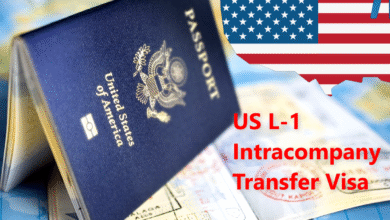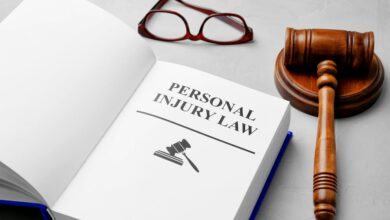How to Find a Real Estate Lawyer in Virginia
Finding a reliable real estate lawyer in Virginia is essential for navigating property transactions with confidence.

Finding the right real estate lawyer in Virginia can make a significant difference when navigating property transactions. Whether you’re buying your first home, selling a property, or dealing with complex legal issues like disputes or zoning laws, a qualified real estate attorney ensures that your interests are protected. Here is a comprehensive guide on how to find the best real estate lawyer in Virginia.

1. Understand the Role of a Real Estate Lawyer
Before beginning your search, it’s essential to understand what a real estate lawyer does. In Virginia, real estate lawyers handle:
- Drafting and reviewing contracts, including purchase agreements and lease agreements.
- Ensuring clear property titles and resolving title disputes.
- Navigating local zoning laws and regulations.
- Representing clients in real estate litigation.
- Overseeing property closings to ensure compliance with state and federal laws.
Knowing their role helps you pinpoint the specific skills and experience you’ll need for your transaction or issue.
2. Start with Local Referrals
One of the best ways to find a reputable real estate lawyer is by asking for referrals. Here are some effective ways to gather recommendations:
- Friends and Family: Ask people in your network if they have worked with a real estate lawyer they would recommend.
- Real Estate Agents: Realtors often work closely with real estate attorneys and can provide trusted referrals.
- Other Lawyers: If you have an attorney for other matters, such as estate planning or business law, they may know a competent real estate lawyer.
Referrals often provide insights into the lawyer’s professionalism, reliability, and communication style.
3. Research Online Directories
Online directories are excellent tools for finding qualified real estate attorneys in Virginia. Look for lawyers on platforms like:
- Avvo: Avvo provides lawyer ratings, reviews, and detailed profiles.
- Martindale-Hubbell: This platform offers peer and client reviews, along with information about the lawyer’s practice areas and experience.
- Virginia State Bar (VSB): The official website of the VSB allows you to verify the credentials of licensed attorneys in the state.
These directories make it easy to filter lawyers based on location, experience, and client reviews.
4. Check Their Credentials
Verifying a lawyer’s credentials ensures they are qualified to handle your real estate needs. Here’s what to look for:
- License: Use the Virginia State Bar’s website to confirm the attorney’s license status and ensure they are in good standing.
- Specialization: Ensure the lawyer specializes in real estate law. General practice attorneys may lack the expertise needed for complex property transactions.
- Experience: Look for a lawyer with years of experience in handling cases similar to yours.
- Certifications: Some attorneys have additional certifications in real estate law, which can be an added advantage.
5. Read Reviews and Testimonials
Client reviews can provide valuable insights into a lawyer’s competence and client service. Pay attention to:
- Overall Satisfaction: Look for patterns in reviews regarding the lawyer’s communication, responsiveness, and knowledge.
- Case Outcomes: While no lawyer can guarantee results, positive outcomes in similar cases can indicate expertise.
- Red Flags: Be wary of consistent complaints about unprofessional behavior or poor communication.
6. Schedule Initial Consultations
Most real estate lawyers in Virginia offer free or low-cost initial consultations. Use this opportunity to:
- Discuss Your Case: Share the details of your real estate matter and ask how the lawyer plans to handle it.
- Assess Communication: Ensure the lawyer communicates clearly and answers your questions thoroughly.
- Understand Fees: Ask about their fee structure, whether it’s hourly, flat-rate, or contingency-based.
Prepare a list of questions beforehand to make the most of your consultation. For example:
- How long have you been practicing real estate law in Virginia?
- Have you handled cases similar to mine?
- What challenges do you foresee in my case?
- What is your approach to resolving disputes or navigating complex transactions?
7. Evaluate Their Local Expertise
Virginia has unique real estate laws, including disclosure requirements, zoning regulations, and closing procedures. Hiring a lawyer familiar with local practices ensures they can navigate these complexities effectively.
- Knowledge of Local Markets: A lawyer with experience in your specific region (e.g., Northern Virginia, Richmond, or Tidewater) is better equipped to address location-specific issues.
- Connections: Local lawyers often have established relationships with title companies, realtors, and other professionals, which can streamline your transaction.
8. Compare Fees and Services
Cost is an important consideration when choosing a real estate lawyer. While fees vary, it’s essential to understand what you’re paying for:
- Flat Fees: Many real estate lawyers charge a flat fee for routine services, such as drafting a purchase agreement or overseeing a closing.
- Hourly Rates: For complex cases, lawyers may charge an hourly rate. Get an estimate of the total hours required for your case.
- Retainer Fees: Some lawyers require an upfront retainer fee, which is applied toward future services.
Always request a written fee agreement to avoid surprises.
9. Trust Your Instincts
After meeting with potential lawyers, trust your instincts. Choose someone who:
- Makes you feel confident in their abilities.
- Communicates effectively and promptly.
- Shows genuine interest in helping you achieve your goals.
A strong attorney-client relationship is built on trust and clear communication.
10. Verify Their Availability
Real estate transactions often involve tight deadlines. Ensure the lawyer has the time and resources to prioritize your case. During the consultation, ask about their current workload and turnaround times for tasks like reviewing contracts or responding to inquiries.
11. Consider Additional Services
Some real estate lawyers offer related services, such as:
- Estate planning to address how your property is managed after your passing.
- Business law expertise for commercial real estate transactions.
- Mediation services for resolving disputes without litigation.
Hiring a lawyer with a diverse skill set can be advantageous, especially if your real estate needs overlap with other legal areas.
Conclusion
Finding a real estate lawyer in Virginia requires thorough research and careful consideration. Start by understanding their role and gathering referrals from trusted sources. Use online directories to identify qualified candidates, verify their credentials, and read reviews to assess their reputation. Schedule consultations to gauge their expertise, communication style, and fees. Prioritize local experience and ensure they have the availability to handle your case effectively.
With the right real estate lawyer by your side, you can navigate property transactions and legal issues with confidence, knowing your interests are protected every step of the way.











